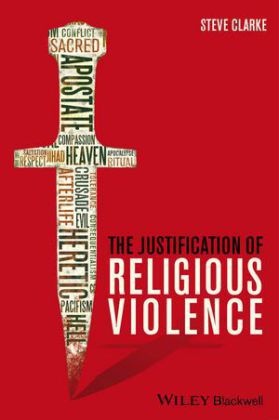Ulteriori informazioni
How are justifications for religious violence developed and do they differ from secular justifications for violence? Can liberal societies tolerate potentially violent religious groups? Can those who accept religious justifications for violence be dissuaded from acting violently? Including six in-depth contemporary case studies, The Justification of Religious Violence is the first book to examine the logical structure of justifications of religious violence.
* The first book specifically devoted to examining the logical structure of justifications of religious violence
* Seeks to understand how justifications for religious violence are developed and how or if they differ from ordinary secular justifications of violence
* Examines 3 widely employed premises used in religious justifications of violence - 'cosmic war', the importance of the afterlife, and 'sacred values'
* Considers to what extent liberal democratic societies should tolerate who hold that their religion justifies violent acts
* Reflects on the possibility of effective policy measures to persuade those who believe that violent action is justified by religion, to refrain from acting violently
* Informed by recent work in psychology, cognitive science, neuroscience and evolutionary biology
* Part of the Blackwell Public Philosophy Series
Sommario
Preface
1 Justification, Religion, and Violence
2 Religion
3 Morality
4 Justifying Violence,War, and CosmicWar
5 The Afterlife
6 The Sacred
7 Recent Justifications of Religious Violence
8 Tolerance
9 Reducing Religious Violence
References
Index
Info autore
Steve Clarke is a Senior Research Fellow in the Centre for Applied Philosophy and Public Ethics at Charles Sturt University in Australia, and a Senior Research Associate of the Uehiro Centre for Practical Ethics at the University of Oxford. He has published over sixty academic papers and is the author of
Metaphysics and the Disunity of Scientific Knowledge (1998), and co-editor of three books including
Religion, Intolerance and Conflict: a Scientific and Conceptual Investigation (with Russell Powell and Julian Savulescu, 2013).
Riassunto
The relationship between religion and violence has been the subject of intense academic and public discussion. Clarke seeks to understand how justifications for religious violence develop and considers how these differ from ordinary secular justifications of violence.
Relazione
"How could anyone believe that they are justified in blowing up school busses or the World Trade Center? What role does religion play in their thinking? Steve Clarke illuminates these complex and controversial issues with clarity and balance. This important book is highly recommended for all of us who wonder about the relations between religion and violence."
--Walter Sinnott-Armstrong, Duke University
"Avoiding big claims about religion causing violence, Steve Clarke argues that many religiously-based justifications for violence, far from being wildly irrational, are formally similar to those commonly offered as secular justifications. Clear, very readable, and thoroughly researched, the book makes a valuable contribution to one strand in the current debate about religion and violence."
--C.A.J. Coady, University of Melbourne
"The heated debates over the relation between religion and violence that burst onto the world's political and intellectual scene after 9/11 have spewed much foam and fury, but little fact or reason. Now, Stephen Clarke offers a sober yet humanistic analysis of how people justify violent acts in the name of religion, showing how historically and cross-culturally pervasive these justifications are. Mostly, secular and religious argument in support of violence proceeds much the same. The difference arises from three classes of premises that stem from religious metaphysics, and that transcend - and so resist contradiction by - empirical evidence and reason: appeal to cosmic war, the afterlife, sacred values, or some combination of these three. Religion thus outperforms the secular in arming violence, with conceptual resources both wider in scope and more resistant to challenge. Fortunately, Clarke also shows us how these same religious assets can be used to lessen violence and resolve even the most intractable conflicts: for example, through understanding and leveraging knowledge of sacred values, and learning how to reframe them, rather than by futilely trying to get opposing sides to ignore, abandon or compromise them."
--Scott Atran, Directeur de Recherche, Anthropologie, CNRS / Ecole Normale Supérieure, Paris

